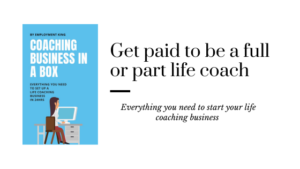A number of employers ask interview questions based on ‘success.’
Success is ambiguous, as each person views success differently. A young career professional may feel successful as they were the first in their family to attend higher education, but a second candidate who grew up in a household where education was deemed as the norm, may not view attending university as a success.
The underpinning objective for the ‘do you consider yourself successful? interview question is more about achievement and the journey to that achievement.
The frame of the interview answer should be one of a hardship the candidate has overcome.

Therefore, the interviewee, to score a high scoring interview answer needs to set out a problem, show planning and how they overcome difficulties and what it was they achieved.
A single parent, as an example, may talk about balancing a family, and a job while studying for a master’s with an open university course. The parent could then go on to discuss additional difficulties; maybe the child became ill or the employer had to make staff cuts.
The ‘difficulties’ is one way to show personality, work ethic and determination. Did the difficulties allow the parent to give up? Or did they grit their teeth determined to be a success?

How to answer the ‘success’ job interview question.
As everyone succeeded in something, this could be finishing school to climbing Everest, the initial answer should be a responding ‘Yes I have been successful….’
Next, state ‘…one example is…’ The ‘one’ example infers there are many other successes.
To answer the question follow these 4 steps:
- Set the goal – to finish a master’s, become a world champion, to set up a part-time business.
- Explain the current barriers; being a single parent, stating a disability, how everyone said you current achieve this goal
- Through in additional difficulties – talk about the journey, how you were on track to be successful and then…a ‘difficulty’ happened.
- Conclude. End the story by stating the success, but more importantly, what you learned about yourself along the way

Example Interview Answer.
“Yes, I would say I am successful. One example of being successful was when I set myself a goal to move into this job sector.
I had left school with no GCSEs and came from a family that didn’t encourage attending higher education – they believed that instead of spending money on education, everyone should find work.
Once I had committed to this career goal I created a careers plan, stating what qualification I needed to gain and enrolled in nigh school, initially gaining my GCSEs and then an access course for nursing.
It was half-way through my access to the nursing course when my father became ill. As an only child whose mother had passed away many years previously, it came down to me to be the carer for my father.
This took up a large amount of time, and my initial thought was that I should quit the course. But, because I am passionate about the profession I knew I had to plan better and manage my time to ensure I could be there for my father while having enough time to spend on my course.
Some of my friends were nurses and they use to tell me how busy they always were, having to do extra shifts and work long hours. So I imagine that caring for my father while studying was my job. This helped me frame it in the right way to stay motivated.
What I learned about myself is that I have self-determination. even when there is a problem I can knuckle down and get the job done.”








